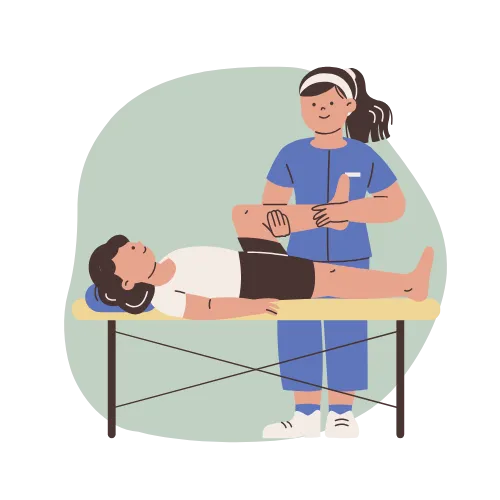Pelvic Organ Prolapse
If you're experiencing a sensation of heaviness, pressure, or bulging in your vaginal area, you may be dealing with pelvic organ prolapse. This common condition occurs when the pelvic floor muscles can no longer fully support your internal organs, allowing them to shift downward.
While these symptoms can feel alarming, specialized physical therapy offers significant relief for most women. Dr. Carly has helped many women reduce prolapse symptoms and avoid surgery through targeted pelvic floor strengthening and proper body mechanics.
East Nashville Pelvic Health
Results You Can Count On
What Causes Prolapse?
Prolapse develops when your pelvic floor faces challenges beyond its current strength. During pregnancy, these muscles support significant extra weight for months, and childbirth can further strain these tissues.
Later in life, hormonal shifts during menopause naturally reduce muscle tone throughout the body, including your pelvic floor. Other common contributors include chronic constipation, persistent coughing, repetitive heavy lifting, or high-impact exercise without proper support. Identifying these factors helps create a treatment plan that addresses your specific situation.


1-on-1 Physical Therapy
Working closely with Dr. Carly, you'll develop a comprehensive approach to strengthen your pelvic floor and reduce prolapse symptoms. Your individualized treatment includes:
Pressure management strategies
Targeted strengthening exercises
Specialized manual therapy
Guidance for using vaginal weights or a referral for a pessary
Each element works together to improve organ support and reduce that uncomfortable heaviness.
Pelvic Organ Prolapse Recovery
Most women notice significant symptom improvement within 4-6 weeks of consistent treatment. Over a 3-4 month course of care, physical therapy can typically improve prolapse by a full grade—meaning measurable reduction in the descent of organs. Many women find they can avoid surgery altogether with dedicated pelvic floor rehabilitation.

East Nashville Pelvic Health
Results You Can Count On
What Causes Prolapse
Prolapse develops when your pelvic floor faces challenges beyond its current strength. During pregnancy, these muscles support significant extra weight for months, and childbirth can further strain these tissues.
Later in life, hormonal shifts during menopause naturally reduce muscle tone throughout the body, including your pelvic floor. Other common contributors include chronic constipation, persistent coughing, repetitive heavy lifting, or high-impact exercise without proper support. Identifying these factors helps create a treatment plan that addresses your specific situation.

1-on-1 Physical Therapy
Working closely with Dr. Carly, you'll develop a comprehensive approach to strengthen your pelvic floor and reduce prolapse symptoms. Your individualized treatment includes:
Pressure management strategies
Targeted strengthening exercises
Specialized manual therapy
Guidance for using vaginal weights or a referral for a pessary
Each element works together to improve organ support and reduce that uncomfortable heaviness.

Pelvic Organ Prolapse Recovery
Most women notice significant symptom improvement within 4-6 weeks of consistent treatment. Over a 3-4 month course of care, physical therapy can typically improve prolapse by a full grade—meaning measurable reduction in the descent of organs. Many women find they can avoid surgery altogether with dedicated pelvic floor rehabilitation.

Ready To Get Started?
How Can We Help?
Have questions or want more information? Fill out the form below and we'll be in touch within 1 business day to answer any questions!
Address: 1131 Richmond Dr. Nashville, TN 37216
Phone: (615) 715-3797
Email: [email protected]
Fax: (615) 628-1552

A Pain Free Pelvis
We're on a mission to help women in Nashville feel their best, at every stage of life.
Get our newsletter & updates:
© 2024 Oberbeck PT PLLC - All Rights Reserved - Terms of Use - Privacy Policy


